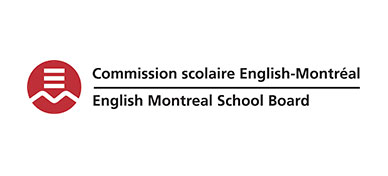In face of an obstinate government pushing an egregious law, the board folded like a cheap suit.
The scene playing out in front of Westmount High School last spring was at once one of seething disdain and jolly pride. The protestors who gathered in front of the school, many defiantly wearing kippas, hijabs and the like, loudly decried Bill 21 and its prohibition on the wearing of religious clothing at work by teachers and certain staff. Though no doubt heartfelt, their anger was leavened by the English Montreal School Board’s decision, announced with great fanfare days before, to ignore the bill should it become law. Translation: EMSB teachers and principals were safe from this frankly egregious law. “We can never be afraid of saying and doing what is right, even if there’s going to be consequences,” EMSB vice-chair Joe Ortona told me at the time.
Apparently, the summer months (and Bill 21’s passage into law in June) have melted the convictions of the province’s largest English-language school board. Last week, in an extraordinary display of cowardice, EMSB commissioners removed from their agenda a motion to debate the law’s enforcement. That amounted to implementing the law after all, meaning any non-grandfathered EMSB teacher or administrator who wears a religious symbol is now open to sanction as dictated by the provincial government. In the face of an obstinate government pushing a demonstrably discriminatory law, the EMSB has folded like a cheap suit.
Apart from abandoning its own employees, the EMSB’s move has nefarious implications for the fight against the laicity law. There is always strength in numbers, and last spring these numbers were formidable indeed. No fewer than three Montreal-area school boards — the EMSB, Lester B. Pearson, as well as the French-language CSDM — representing close to 175,000 students were vocal in their opposition to Bill 21.
Of these, the EMSB was arguably the most strident, with Ortona conspicuously pointing out how it stomped on a variety of the rights guaranteed under the Canadian Charter of Rights and Freedoms, and was “contrary to the values (the EMSB) teaches its children, in particular values of diversity, acceptance, tolerance and respect of individual rights and religious freedoms.” The board further presented a brief to the National Assembly reiterating its intention to ignore any law “that prohibits or restricts its employees from wearing religious symbols in the exercise of their functions and duties in our schools and classrooms.”
Alas, the board’s Malcolm X-level of righteousness evaporated like a summer rain at the first instance of trouble. In August, the CSDM said it would apply the law, despite having suggested it was practically unenforceable not two months before. There is little indication as to why the EMSB has reneged. In any event, the fight against the laicity law now is weaker in practice because of the EMSB’s actions. And in enforcing the law, the board will be going against the “values of diversity, acceptance, tolerance and respect of individual rights and religious freedoms” that Ortona so valiantly spoke of in April. (The Lester B. Pearson board also fell in line last week.)
These things don’t happen in a vacuum. The French-language CSDM changed its mind when the government threatened it with trusteeship, and one can’t help but wonder whether the EMSB did the same under similar threat. If so — and there all kinds of off-the-record whispers saying as much — it’s worth considering the following: the EMSB has bowed to pressure from a government that has already bullied it, arbitrarily taken its property and wishes to eliminate it altogether along with all other school boards in the province. In fact, the EMSB is part of a larger group planning a legal battle to prevent the government from doing something that would amount to a violation of linguistic-minority rights in the province.
Given its flip-flop on the laicity law, one wonders whether the EMSB will even have the backbone to fight for its own existence.


























